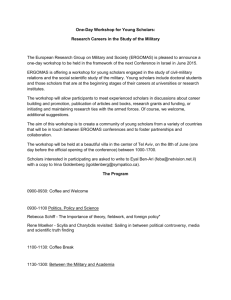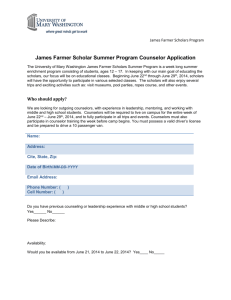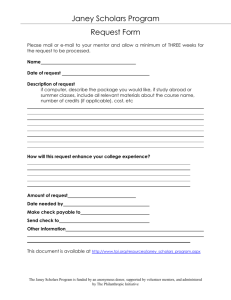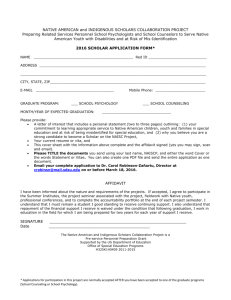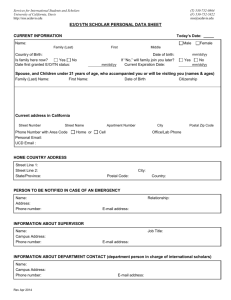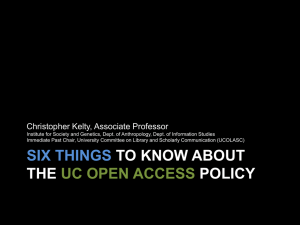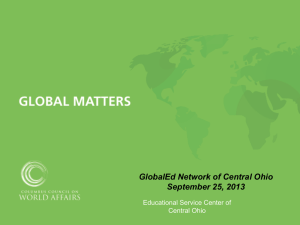Mar - Resource Centers for Minority Aging Research
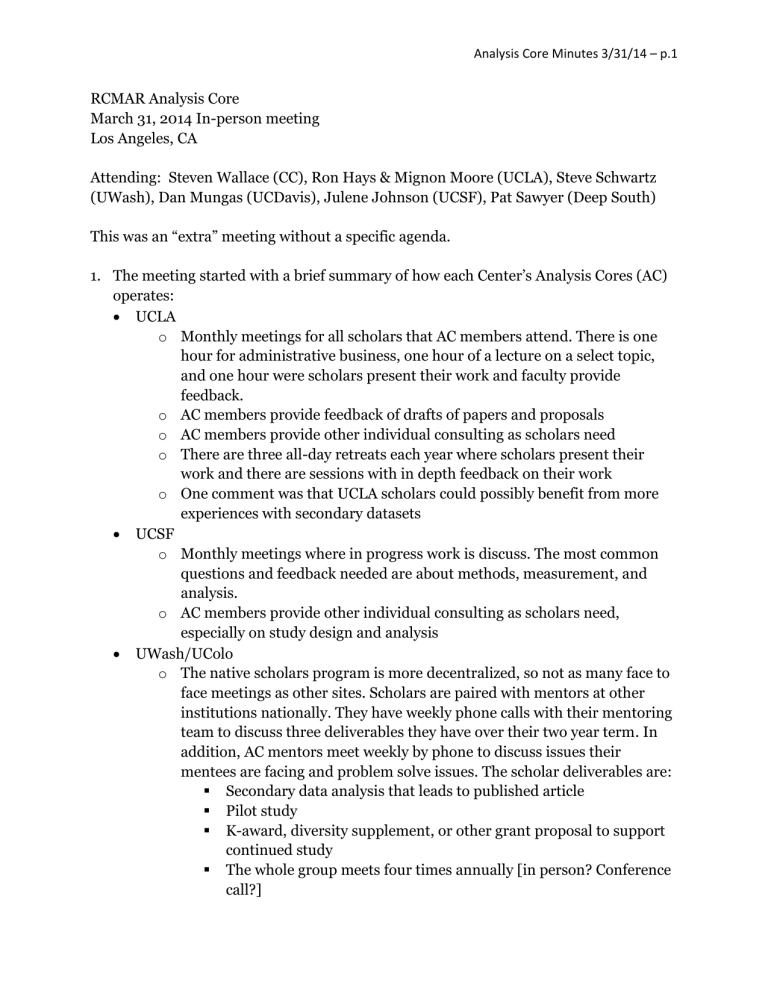
Analysis Core Minutes 3/31/14 – p.1
RCMAR Analysis Core
March 31, 2014 In-person meeting
Los Angeles, CA
Attending: Steven Wallace (CC), Ron Hays & Mignon Moore (UCLA), Steve Schwartz
(UWash), Dan Mungas (UCDavis), Julene Johnson (UCSF), Pat Sawyer (Deep South)
This was an “extra” meeting without a specific agenda.
1.
The meeting started with a brief summary of how each Center’s Analysis Cores (AC) operates:
UCLA o Monthly meetings for all scholars that AC members attend. There is one hour for administrative business, one hour of a lecture on a select topic, and one hour were scholars present their work and faculty provide feedback. o AC members provide feedback of drafts of papers and proposals o AC members provide other individual consulting as scholars need o There are three all-day retreats each year where scholars present their work and there are sessions with in depth feedback on their work o One comment was that UCLA scholars could possibly benefit from more experiences with secondary datasets
UCSF o Monthly meetings where in progress work is discuss. The most common questions and feedback needed are about methods, measurement, and analysis. o AC members provide other individual consulting as scholars need, especially on study design and analysis
UWash/UColo o The native scholars program is more decentralized, so not as many face to face meetings as other sites. Scholars are paired with mentors at other institutions nationally. They have weekly phone calls with their mentoring team to discuss three deliverables they have over their two year term. In addition, AC mentors meet weekly by phone to discuss issues their mentees are facing and problem solve issues. The scholar deliverables are:
Secondary data analysis that leads to published article
Pilot study
K-award, diversity supplement, or other grant proposal to support continued study
The whole group meets four times annually [in person? Conference call?]
Analysis Core Minutes 3/31/14 – p.2
Deep South o There are training meetings on health disparities twice/month that includes RCMAR and other trainees. These have lectures on specific topics. o Annually there is a grant writing retreat that is a full week where scholars
(RMCAR and others) are on site for the full week. o They are expected to produce an article in their first year.
Davis o Half day meetings monthly, covering administrative issues, expert lectures, and scholar presentations. o AC members provide other individual consulting as scholars need
[no representatives from Michigan/Wayne State or USC were present]
2.
The sites discussed the possibility of surveying or otherwise asking scholar what
(else) they would like to have in the way of Analysis/design/measurement resources that the RCMARs could provide. Also could ask them what they find most useful in websites so that ours can be more attractive/useful. a.
ACTION ITEM? [???]
3.
There was then a discussion of whether existing resources existed that would be of use to scholars. For example, high quality MOOCs from Hopkins were mentioned as one possible resource. See https://www.class-central.com/university/jhu for a current listing. One site recommended these, but few scholars finished them due to competing demands. a.
ACTION ITEM: list MOOC analysis/design/measurement resources? [???]
4.
Another resource mentioned was the UCLA ATS listing of programming code for common stat packages for specific routines. For example, see “Combining Stata data files” at http://www.ats.ucla.edu/stat/stata/modules/combine.htm
. Their complete website is at http://www.ats.ucla.edu/stat/ a.
ACTION ITEM: list this on Analysis page [spw]
5.
A virtual journal club was thought to be a useful idea. One site (NERC?) is developing this. For sites where people can be physically together this works well to discuss recent articles as a learning exercise. a.
One idea is to pick examples of good analysis sections from articles to use as models. Pick different journals to show that they are journal specific. b.
Writing skills are also a big need and takes a lot of time. NERC has an annual workshop on the topic. At UCSF scholars can participate in the
Analysis Core Minutes 3/31/14 – p.3
CTSI class. Not anyone can teach this – professional writing instructors are very helpful. c.
Davis has a one-week summer course on clinical research that scholars can attend that serves a broader set of trainees and has been going on for 20 years. d.
Some scholars often have interventions with basic pre/post designs. There is not much detail on methods. e.
ACTION ITEM? There was a discussion about the potential usefulness of a simple bulletin board or discussion forum (RSS feed, twitter feed?) where scholars could post questions and faculty with expertise from any RCMAR could answer. OR new CC website in the next few months will have a blog feature that could be used similarly. Our communications should help highlight the resources we already have on the annotated bibliography.
[???] i.
Might also do a brief (recorded) webinar to introduce the resources
6.
To help scholar it was suggested that we webcast some or all of the next Annual
Meeting so scholars who are not able to attend can participate as well. a.
There are also experts in the RCMAR whose lectures could be recorded and made more widely available. i.
E.g. Rob Weech-Maldonado talks about measuring cultural competency; Sergio was mentioned as another good speaker to record. b.
IRB issues & new secondary data sources (e.g. NHATS http://www.nhats.org/ ) were other cross-site area to bring resources to c.
ACTION ITEM: ID cost/feasibility [spw]


